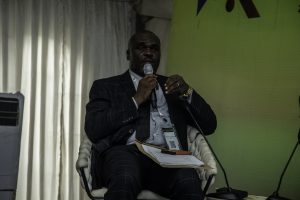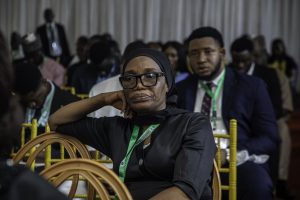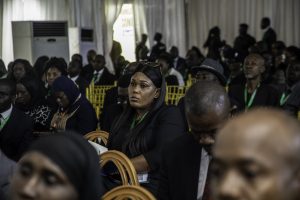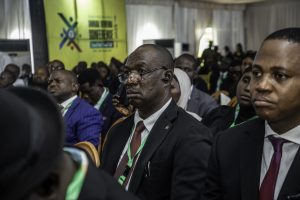At the just-concluded Nigerian Bar Association (NBA) Annual General Conference in Enugu, a thought-provoking panel examined one of the most pressing issues facing the legal profession today: how globalization is reshaping legal ethics and professional practice in Nigeria.
Moderated by Hon. Justice Nnamdi Dimgba, JCA, the session featured leading voices including Prof. Ibrahim Abdullahi, SAN, Hon. Justice Lotanna C. Alinnor, Bar. Rantiade Benson-Idahosa, and Mr. Augustine Okafor. Together, they unpacked the challenges and opportunities arising as Nigerian law increasingly intersects with international legal standards.
The Globalization Wave in Law
In his keynote, Prof. Ibrahim Abdullahi, SAN, traced how globalization, powered by technology, commerce, and politics, has transformed the practice of law. Unlike in previous decades where legal ethics were confined within national borders, lawyers today are constantly navigating cross-border transactions, multinational disputes, and transnational regulatory regimes.
He highlighted several ethical dilemmas:
- Conflicting norms: Lawyers may face differing professional standards in cross-border matters.
- Extradition and sovereignty issues: Globalization complicates questions of jurisdiction.
- Client expectations: Multinational corporations demand the same speed and efficiency in Nigeria as in New York, London, or Dubai.
Yet, he emphasized that globalization is not all threat:
“Global organizations like the IBA have helped in harmonizing standards. Globalization enhances opportunities, but it also tests our commitment to professional integrity. We must find the balance.”
The Judiciary as Guardian of Integrity
Justice Lotanna Alinnor underscored the judiciary’s central role in upholding ethics despite global pressures. While acknowledging that globalization may expose lawyers to new temptations, she warned that the courts must remain the bedrock of ethical conduct:
“Judges and the Bar together bear the duty of preserving the nobility of our profession. Globalization cannot erode integrity if we choose to protect it.”
The Fear of Displacement
From the Bar’s perspective, Mr Augustine Okafor of KENNA Partners painted a vivid picture of foreign legal players quietly but steadily entering Nigeria’s market. Whether through international firms partnering with locals or cross-border arbitration work, Nigerian lawyers are already competing with global colleagues.
He advised that, rather than resisting, Nigerian lawyers must raise their competence and embrace Continuing Legal Education (CLE) to survive.
Reforming Legal Education
Bar. Rantiade Benson-Idahosa, founder of Pathfinders Justice Initiative, made a passionate call for overhauling Nigeria’s law curriculum. She argued that law faculties must integrate global practice modules, digital law, and international compliance systems if graduates are to stand shoulder to shoulder with peers abroad.
“Globalization has made the world a small village. Our law schools must equip lawyers with the agility, technical skills, and ethical grounding required to compete.”
The Consensus: Adapt or Be Left Behind
During Q&A, many lawyers expressed fears that globalization could worsen unemployment in the profession by favoring international players over locals. The panel’s response was unanimous: globalization is here to stay. Retreat is not an option.
Instead, Nigerian lawyers must:
- Continuously upskill through CLE and specialized certifications.
- Preserve core ethical values to remain trusted in global transactions.
- Leverage technology to deliver services at international standards.
- Collaborate, not compete blindly, with foreign lawyers, learning from global best practices.
Justice Dimgba’s Closing Charge
Bringing the session to a close, Justice Nnamdi Dimgba, JCA struck a note of balance:
“Globalization will test our systems, but it also opens doors. Nigerian lawyers must be globally competitive while holding firmly to professional ethics. Our relevance on the global stage depends on it.”
The panel concluded that globalization is not a threat to Nigerian lawyers, but a challenge to grow. Lawyers who adapt, learn, and uphold ethics will thrive; those who resist change may find themselves irrelevant in the profession’s new order.
More photos:






























































